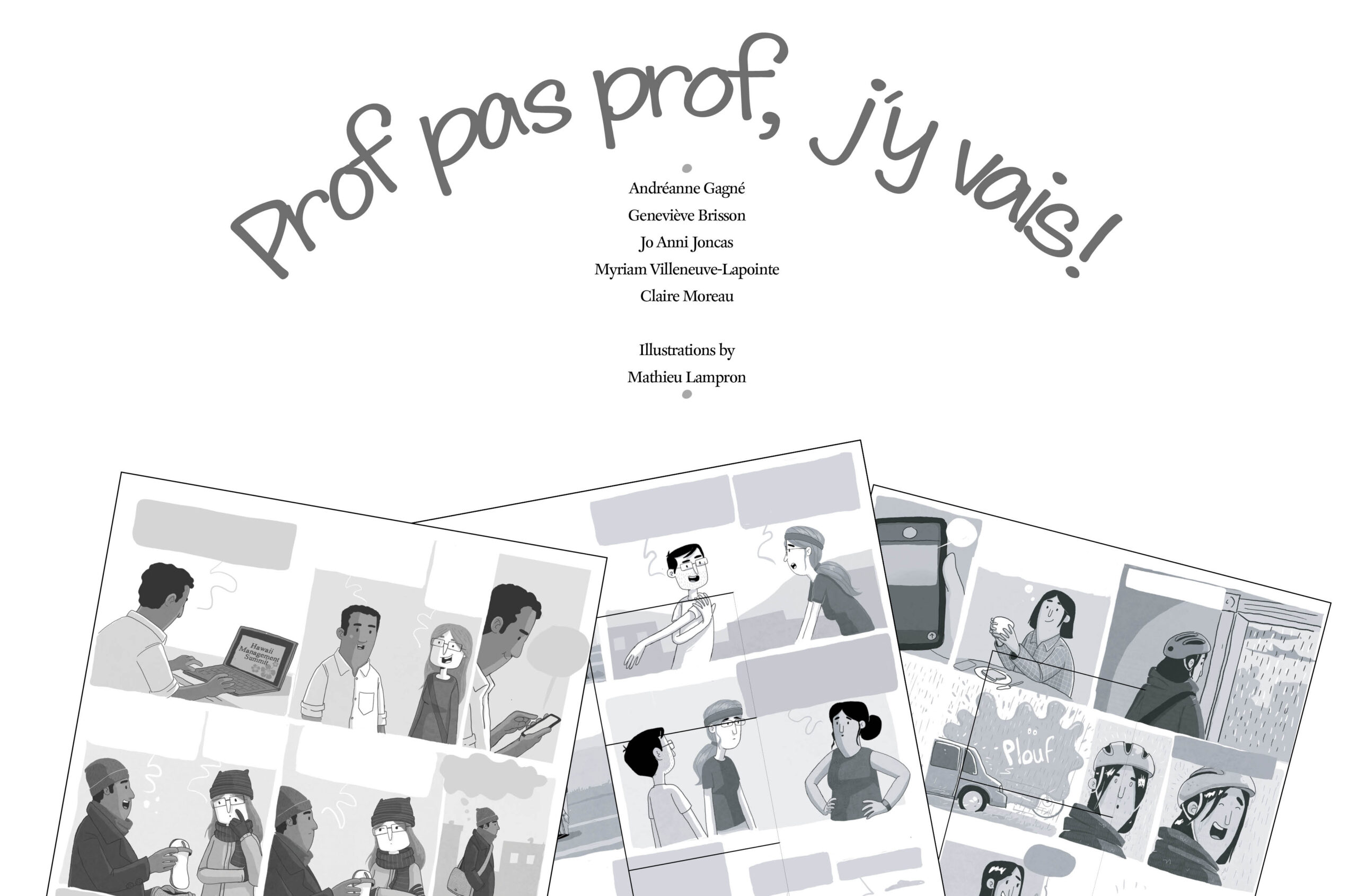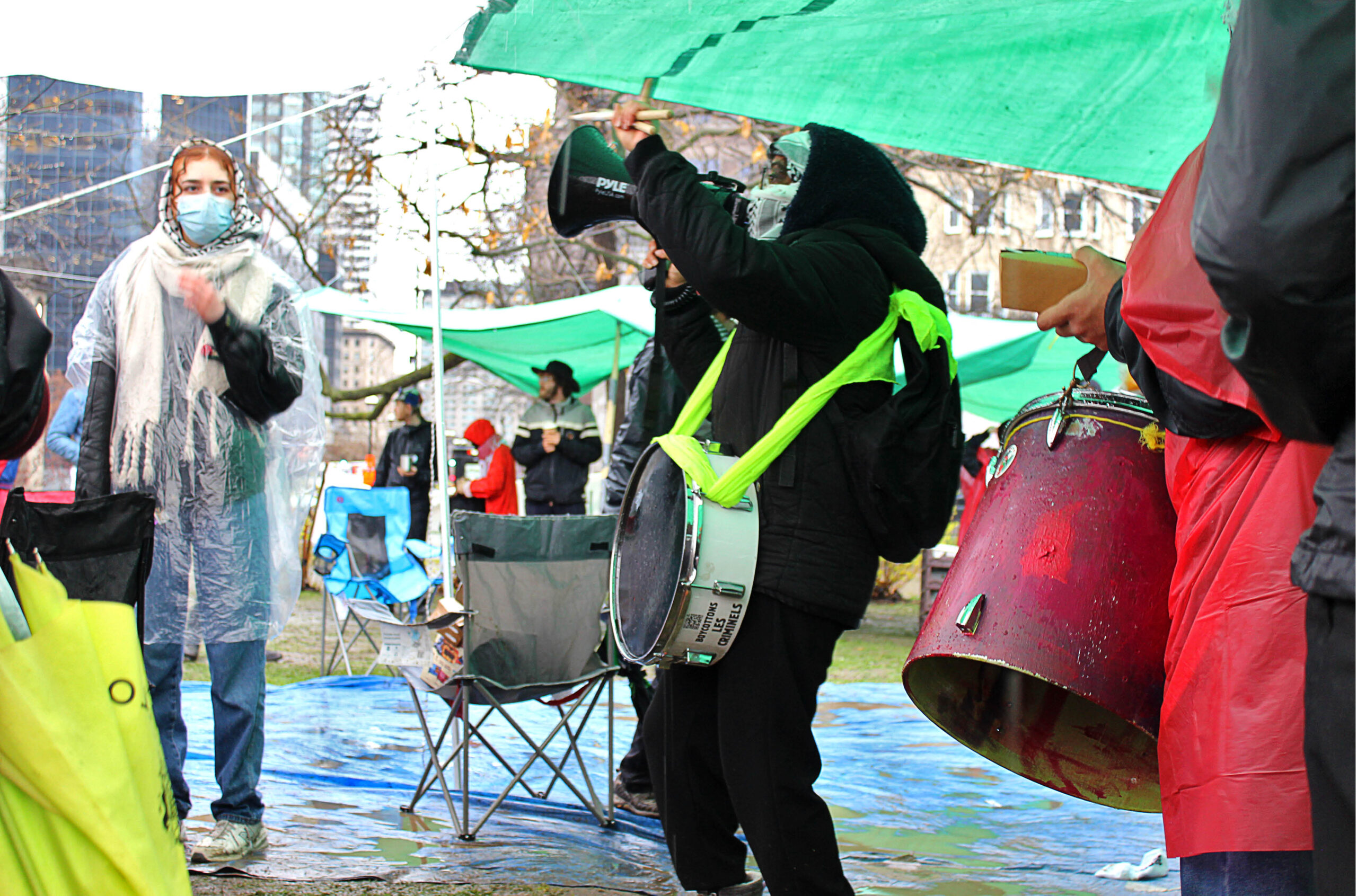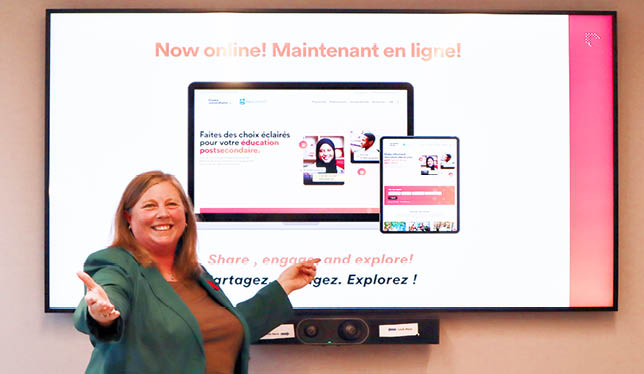I matter here. Maybe.
We have to start being more intentional and transparent in promoting and celebrating empathy, inclusivity and kindness on our campuses.

Hashtag, I matter here – the subtitle of our institutional lives. But, increasingly, I have begun to question who the “I” is in this hashtag. Because I’m not sure it’s me. Or her (it’s definitely not her). Or him. I think it might be that guy, over there. He definitely matters.
Every time this hashtag pops up on my Twitter feed, I wonder about students and colleagues who might not feel that they do in fact matter here. Students who are struggling in significant ways, gasping for breath under the desperate pressures of school, life, family. Colleagues on mental-health leaves, forgotten and unpaid, crawling their way back to the very place that sent them into the darkness. Does this hashtag make a difference to them? I would hope so, and perhaps there is good intention behind it. Nonetheless, I find myself troubled at times observing a disconnect between what is being communicated about our institutions and what is actually happening in our ivory towers.
I work in a teaching and learning centre. And most of the time I love it. I spend my time with teachers and learners, pouring over curriculum and talking about what I love: teaching and learning. So many instructors, so many courses, so many permutations. It’s endlessly challenging, in a good way. Until it’s not. Until our conversations shift away from learning outcomes and engaging teaching strategies and we slide into whispers about workload issues, politics, bullying and survival.
Teaching and learning centres must feel like a safe space for faculty who are struggling, beaten down, isolated. I’ve come to learn this, and I keep my Kleenex box primed and my heart open. But, more often than I care to admit, I’ve had to give advice to keep instructors safe and sane, advice that goes against my better instincts about good pedagogy, advice that I have no choice but to give. What does it mean when we have to make questionable teaching and learning decisions in order to stroke the ego and ambition of others? Who matters in this scenario?
There is a mental-health crisis in the ivory towers of our nation, for our students and our faculty. And although authors like Moira Farr write about the many ways that faculty can support students in addressing mental health issues, we must also ask how we can support faculty in managing their mental-health burdens. Eve Seguin’s article on academic mobbing and its lengthy comments section reminds us of the damage that is being done within our institutions to the very people we are expecting to teach our students. Social media can mask much of this damage by adeptly communicating our best angles, dressing us up in light and shadows that make us look 30 lbs. lighter and 10 years younger. What if our hashtags encouraged us to make others feel like they matter here, rather than just telling the world that they do?
What if we really started to problematize the 80-hour work week, incomprehensible workloads and lack of support for new (and seasoned) faculty. We need to stop celebrating unachievable academic benchmarks, and achievements that make us look good to outsiders but with complete disregard to the straight-up sanity of those on the inside – our faculty, our leaders, our students. We have to start being more intentional and transparent in our hiring, promoting and celebrating empathy, inclusivity, compassion and kindness. I have never sat on a hiring committee where they’ve asked to see these qualities. “Can you tell us about a time when you demonstrated empathy to a student? A colleague?” The very traits we scream at the world with our punchy HR pamphlets and ribbon-cutting ceremonies.
More importantly, we have to be more intentional about teaching empathy, inclusivity, compassion and kindness – to everyone, in all of our programs – an elusive goal when many of us are too busy trying not to get mobbed. We need to care as much as we can, and not about ourselves and our ambition, but about our students and our colleagues, even our leaders, and even when they let us down. I know it sounds kindergarten basic, and I wish I could articulate it in as powerful a way as an ironic hashtag that reaches through the computer and grabs you by the collar. But I’m running out of Kleenex, and maybe a little bit of patience. Hashtag, we can do better.
Kathleen Bortolin is a curriculum, teaching and learning specialist in the Centre for Innovation and Excellence in Learning at Vancouver Island University.
Featured Jobs
- Education - (2) Assistant Professors (English Language Arts and TESL / Curriculum, Teaching, and Learning) (10-month term)Bishop's University
- Sociology - Assistant Professor, Tenure-Track Teaching-Intensive (Critical Criminology) Brock University
- University LibrarianYukon University
- Health Sciences - Researchers - Canada Excellence Research Chairs NomineesMcMaster University
- Human Resources and Organizational Behaviour - Lecturer, 2-year termUniversity of Saskatchewan














Post a comment
University Affairs moderates all comments according to the following guidelines. If approved, comments generally appear within one business day. We may republish particularly insightful remarks in our print edition or elsewhere.
3 Comments
Beautifully written, Kathleen
Thank you for your vulnerability
In terms of empathy… I believe that we need to go beyond teaching about empathy, and employ pedagogies where empathy is developed: anytime people connect, (especially with some degree of vulnerability) there is a potential for empathy to be created.
The way you have shared here is a strong example
Owen Webb
I agree with you, Kathleen. In fact, I do discuss at length in my article the issue of support for faculty dealing with mental health issues among students. Pressures faced by academics was the impetus for the article:
“Many others echo Dr. Yates on the need for more research and clear guidelines on how to deal with any number of situations that may arise surrounding student mental health in the classroom. Most universities offer faculty training in this area, but it’s voluntary. In the flood of email the average professor receives from administration over a semester, it would be easy to miss the one containing a link to the webpage where policies and protocols for dealing with student mental health are outlined. It’s valuable information, but only if everyone knows where to find it and what to do with it.
“Faculty deserve better professional development,” says Maria Lucia Di Placito-De Rango. A professor of English at Humber College in Toronto, she has researched and written extensively on how universities and professors see their role in helping students with mental-health issues. In a 2017 article in the International Journal of Mental Health and Addiction entitled “Situating the Post-Secondary Instructor in a Supportive Role for the Mental Health and Well-Being of Students,” she writes: “Despite the increased consideration of student mental health and the ongoing efforts of bettering intervention systems, one aspect remains relatively under-explored: the role of the instructor.
Leaving faculty to wade through grey areas may have more serious consequences than we realize. A survey of 52 academics in the U.K., published in January by the non-profit-group Student Minds, found that participants were confused about how they should handle students with mental illness. According to the report, “Most academics acknowledged that their role involved pastoral care [defined as a teacher’s responsibility for the general well-being of their students].” However, most respondents didn’t understand what that responsibility involved, “resulting in uneven responses for students, uncertainty for staff and unequal levels of accepted responsibility for student mental health.
The report’s authors note that “getting the balance right between pastoral and academic responsibilities is difficult and nuanced, and cannot be addressed by structural descriptions alone; students approach approachable academics for support regardless of how the role is described to them.”
The report also indicates that “responding to the range and complexity of issues that students present to academics was seen to have ongoing cognitive, emotional, relational and practical effects.” The academics surveyed said that worrying about students’ well-being had led to disruptions in their sleep and in their home lives, among other impacts to their health and wellness.
In her coverage of the report for Times Higher Education, Sophie Inge quotes study co-author Gareth Hughes, who observes that “the signposting we’re asking academics to do is a more complex and nuanced task than we realized. And we absolutely need to get student services and academics working more closely together.”
The dilemma of the compassionate professor will strike a chord with many instructors who may be juggling more mental health-related accommodation requests than ever, and who wonder how best to help students exhibiting signs of distress. Solutions mandated by staff without input from faculty can certainly create tensions and doubts. And opinions vary among faculty about how best to offer certain accommodations to students.
In defense of late papers,” a March 2018 opinion column in University Affairs by Andrew Moore, an associate professor at St. Thomas University, elicited both supportive and critical online comments. One endorsed leniency on deadlines: “There will always be scammers but in today’s world there are strong arguments for cutting students some slack.” Another commenter noted that while he believes it is fair to accommodate genuine health concerns, “what about fairness in the other direction? Fairness to the person grading the paper who’s certainly on contract (and therefore has a tight deadline or doesn’t get paid) to get final grades in.
Thank you, Moira, for your comments and for writing your article. Clearly, mental health issues in higher education, for both students and faculty, is a significant issue. Between both of our articles, and the ones you cite, I see layers of pressure for both faculty and students, layers that are all tied to the academy—what it’s doing, and what it’s not doing. At the end of your comment here, you cite the opinion piece by Andrew Moore (“In defense of late papers”), and comment that it elicited both supportive and critical comments. We are a critical bunch in higher education, but I always pause when we criticize that which seems to be advocating for a gentler and kinder approach. Perhaps now I’m simply criticizing the criticism. Layers. My own essay, although championed by many, both at my institution and beyond, has its critics as well. I’ve been surprised and unsettled by how an essay advocating for more empathy has resulted in less. Perhaps the essay reflects back at some something very difficult to see. And it has all led me to question what the freedom piece of academic freedom really means. Perhaps that will be my next essay. Nonetheless, I hope that my essay and yours inspire in some way institutions of higher learning toward a gentler, kinder, more empowering place. For everyone. Even the writers.